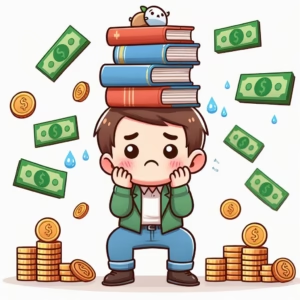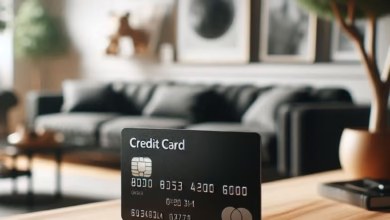Tips to avoid getting into debt with your credit card
Check out these tips to avoid credit card debt

Credit cards can be powerful financial tools, offering convenience and rewards. However, they can also be a slippery slope towards debt if not managed responsibly. Understanding how to use your credit card wisely is crucial for maintaining financial health and avoiding the stress of mounting balances and high-interest payments. This guide provides practical and easy-to-understand tips to help you stay out of credit card debt and keep your finances on track.
Create a Realistic Budget and Track Your Credit Card Spending Diligently

The cornerstone of avoiding credit card debt is knowing where your money is going. Start by creating a realistic monthly budget that outlines your income and expenses. Then, diligently track every purchase you make with your credit card. Numerous budgeting apps and spreadsheets can help you monitor your spending in real-time. By understanding your spending patterns, you can identify areas where you might be overspending and make necessary adjustments to stay within your financial limits.
Only Charge What You Can Afford to Pay Back in Full Each Month
The most effective way to avoid interest charges and debt is to treat your credit card like a debit card. Only charge expenses that you have the funds to pay back in full by the due date each month. This simple rule can save you significant amounts of money in interest over time and helps you maintain a healthy credit score. Avoid using your credit card for purchases you can’t comfortably afford right now, hoping to pay them off later.
Set Realistic Credit Card Spending Limits for Yourself

While your credit card issuer assigns you a credit limit, it’s wise to set your own, more conservative spending limit. This internal limit should align with your budget and your ability to repay. You can even utilize features offered by some credit card companies to set spending alerts or temporary spending limits on your card. This proactive approach can help you avoid the temptation of overspending and keep your balances manageable.
Automate Your Credit Card Payments to Avoid Late Fees and Interest
Late payments not only incur hefty fees but also can negatively impact your credit score and lead to higher interest rates. Set up automatic payments from your checking account to cover at least the minimum payment, or ideally the full balance, each month. This ensures that you never miss a due date and helps you avoid unnecessary charges and interest accumulation.
Understand Your Credit Card’s Interest Rates and Fees

Familiarize yourself with the Annual Percentage Rate (APR) on your credit card for purchases, balance transfers, and cash advances. Be aware of any annual fees, late payment fees, over-limit fees, and other potential charges associated with your card. Understanding these costs will help you make informed decisions about how you use your credit card and avoid unexpected expenses that can contribute to debt.
Be Cautious with Balance Transfers and Avoid Taking Out Cash Advances
While balance transfers can sometimes be a useful strategy for consolidating debt, be cautious of introductory periods with low or zero interest rates that eventually revert to higher rates. Understand the fees associated with balance transfers and ensure that the transfer will genuinely save you money in the long run. Cash advances on credit cards typically come with high interest rates and fees, and interest often starts accruing immediately. Avoid cash advances unless it’s a genuine emergency and you have a clear plan for immediate repayment.
Resist the Urge to Make Impulse Purchases with Your Credit Card

Credit cards can make it easy to make spur-of-the-moment purchases. Before swiping your card for a non-essential item, take a moment to consider if it aligns with your budget and financial goals. Waiting periods or the “30-day rule” (waiting 30 days before buying a non-essential item) can help you differentiate between wants and needs and avoid accumulating debt on unnecessary purchases.
By implementing these practical tips, you can harness the benefits of your credit card without falling into the trap of debt. Responsible credit card usage is about awareness, planning, and making conscious spending decisions.





